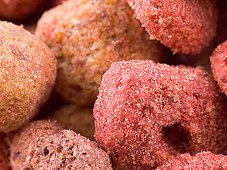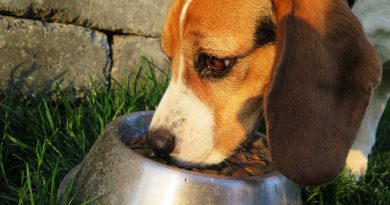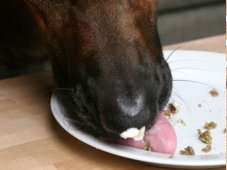Your Dog’s Unique Nutritional Needs

Now, dog owners have more choices. Different foods for puppies, adult dogs and the senior set have been in stores for a while. Newer to the market are foods geared to meet the requirements of dogs based on size, sensitivities to digestive ailments, skin issues, weight and level of activity.
Dogs That Benefit From the New Foods
Does the average dog need these new dog foods? "No, but they have been a godsend to owners with dogs that have certain problems or requirements," says Dr. Bonnie Beaver, past president of the American Veterinary Medical Association and a veterinary professor at Texas A&M University. "It’s been extremely helpful to give good quality nutrition and meet the health needs of these animals."
A Checklist for Dog Nutritional Needs
To determine which dog food is right for your pet, experts say you should talk to your dog’s veterinarian and consider the following:
Age
Older dogs tend to burn fewer calories than puppies and normal adult dogs do. Therefore, nutritional needs differ based on age, says Dr. Katy J. Nelson, an emergency veterinarian in Alexandria, Va., who has worked on pet nutrition issues. In general, dogs are divided into the following age groups: puppies (0 to 12 months), adult dogs (1 to 7 years) and senior canines (7 years and older).
Size of Breed
Smaller breeds often eat less, but they frequently need more dietary fat to maintain a high energy level, as do larger dogs. Dogs are generally defined as small (1 to 20 pounds), medium (20 to 50 pounds), large (51 to 100 pounds), and giant (100 pounds and up).
Weight Issues
Overweight dogs tend to develop a variety of problems, such as joint disease, a higher risk of cancer and gastrointestinal problems, in addition to having a shorter life expectancy. To determine if your pup is overweight, Beaver suggests feeling its ribs. If you push through too much fat and cannot feel them easily, your dog could be overweight. Foods for overweight dogs often contain L-carnitine, a nutrient that helps the body turn fat into energy.
Activity Level
Dogs that get lengthy walks or do more strenuous exercise will burn more calories than couch potatoes, so you want a food that promotes good digestion and properly energizes your pet.
Pregnant/Nursing/Neutered Dogs
Dogs that are pregnant or nursing may need a higher caloric intake than other adult dogs. Dogs that have been spayed or neutered have lower energy requirements and metabolic needs. According to Nelson, "maintaining those sex organs takes a lot of the body’s energy and slows down a whole lot of processes."
Unique Issues
Healthy digestion may be maintained by feeding your dog a food containing prebiotics, which stimulate the growth of "good" bacteria in the gut. Dog foods that reduce tartar buildup can help your pup maintain healthier teeth. Dry, flaky skin may be alleviated by foods that contain essential fatty acids. To prevent joint and mobility issues, try foods containing glucosamine, chondroitin sulfate and fish oil. Meanwhile, dog foods with novel proteins and carbohydrates are also available for canines.



